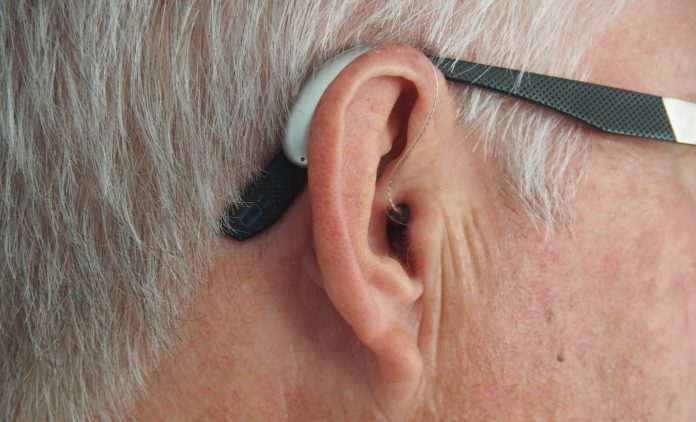
In a new study from the University of Manchester, researchers found reports of symptoms such as tinnitus and hearing loss during the coronavirus pandemic could in part have a psychosocial origin rather than being directly linked to COVID-19 or the SARS-CoV2 virus.
They found that symptoms—which by definition are not measurable—are a fertile ground for misinterpretation.
Reports of associations between COVID-19 and auditory symptoms such as hearing difficulty and tinnitus have been widely discussed in the media and academia.
However, most studies have relied on self-reporting and lacked baseline information from before the pandemic.
In the study, the team surveyed over 6000 people about whether they had hearing difficulty and/or tinnitus.
The survey asked about the onset and change in three types of symptoms:
Type one: loss of smell, memory/concentration issues, persistent fatigue which have known association with COVID-19.
Type two: auditory symptoms (hearing difficulty and tinnitus) which have an indeterminate association with COVID-19.
Type three: toothache, a red herring with no established association with COVID-19.
The team found the onset of new auditory symptoms coincided with COVID-19 in only a third of the people reporting the symptoms.
a third didn’t know when their symptoms began; and a third said their symptoms began before the pandemic, even though all had said they didn’t have auditory symptoms in March 2019.
More than 60% of people with confirmed or suspected COVID-19 said that their toothache had also been affected by COVID-19 despite there being no evidence of an association.
As expected, Type one symptoms were reported most commonly by the people with confirmed COVID-19.
But Type two and Type three symptoms were reported most commonly by the people who suspected they had COVID-19.
The study also asked about challenges experienced during the pandemic, such as feeling lonely and anxious, lack of exercise, lack of space at home, and caring for others.
They looked at the number of challenges reported relative to the number of symptoms experienced during the pandemic and found the higher the number of challenges, the more symptoms were reported.
The team says although there were more reports of auditory symptoms in people with confirmed or suspected COVID-19, this study provides evidence that psychosocial factors influenced what our respondents felt.
If you care about COVID, please read studies about new ways to predict who will get severe COVID-19 and die, and why people with blood Type O less likely to get COVID-19.
For more information about health, please see recent studies about new drug that could prevent COVID-19, and results showing that for people over 50, even ‘mild’ COVID 19 can cause dangerous health problems.
The study is published in Frontiers in Public Health and was conducted by Professor Chris Armitage et al.
Copyright © 2022 Knowridge Science Report. All rights reserved.



